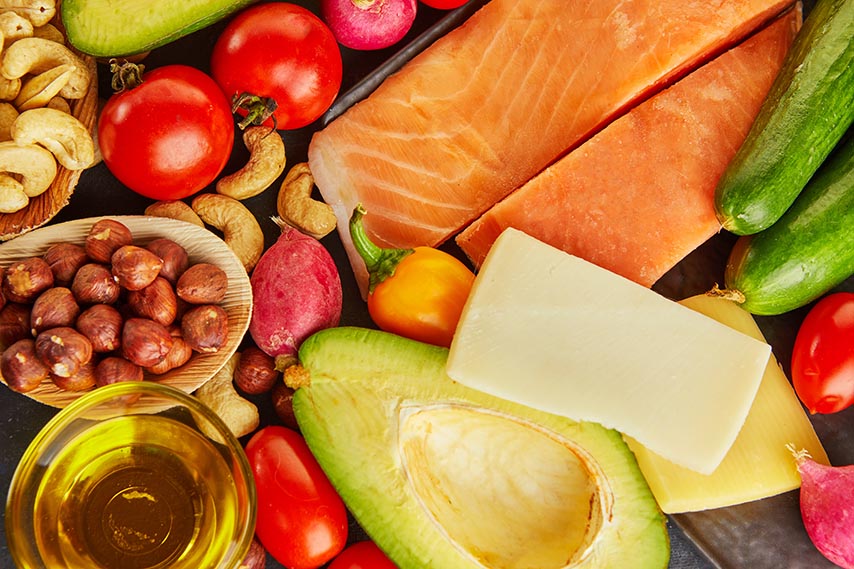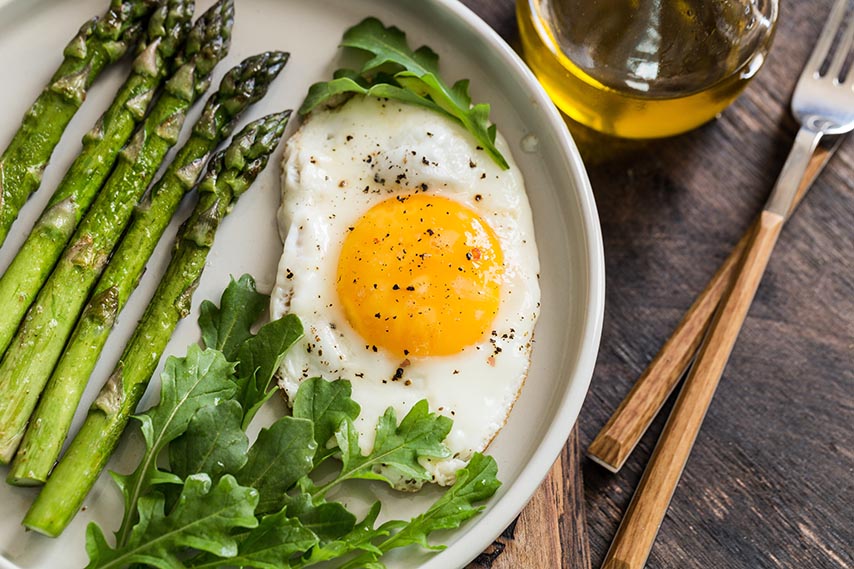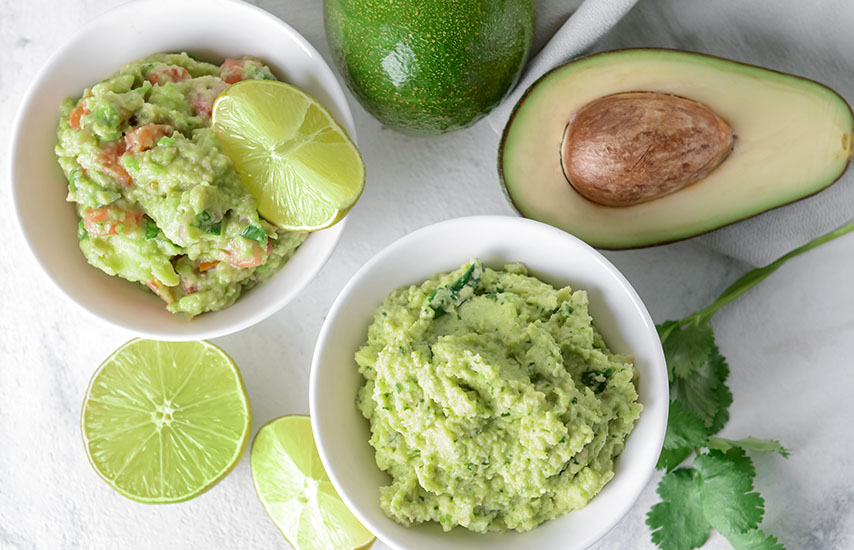Keto FAQs: Answers to Your Burning Questions

The keto diet is a popular method of weight loss that involves increasing your fat intake while reducing the net carbs you eat per day. It has been shown to help many people to lose weight and reduce their body fat.
As a restrictive and relatively new diet, there are many questions people have about it. In our keto FAQs article, we have covered the 20 most commonly asked questions about the ketogenic diet. Take a look to find answers to all of your questions now.
Top 20+ Most Popular Keto Diet Questions: Find Your Answer Here
#1 What is the keto diet?
The ketogenic diet is a way of eating that involves increasing your dietary fat intake and reducing the net carbs you eat each day. Usually, your daily carb limit needs to remain below 20–30g. Eating in this way puts the body into the metabolic state of ketosis. This means the body will burn stored body fat for fuel rather than blood sugar, helping you to reduce your overall body weight.
Limiting your total carbs each day has been found to have many health benefits, including reducing the level of blood lipids, including triglycerides, in your body, better control over blood glucose levels, and a drop in blood pressure.
#2 What can you eat on a keto diet? What are some keto foods?
On the keto diet, the majority of the foods you eat should be healthy unsaturated fats. This could include eating avocado, fatty fish, nuts, and seeds, and supplementing with healthy oils, like extra virgin olive oil and sesame oil. You can eat dairy on the ketogenic diet but should avoid low-fat options.
It is important that you do not eat more saturated fat than unsaturated fats. Saturated and trans fats are both found in junk food and takeouts and can be bad for your heart and overall health. In fact, it is recommended that you get no more than 5–6% of your total calorie intake from saturated fat each day.
Along with being a high-fat diet, the keto diet is also a moderate protein diet. About 30–40% of your plate should be taken up by high-protein foods, like beef, fish, other seafood, pork, and chicken, or tofu if you are attempting a ketogenic vegan diet.
It is important to stick within this protein intake limit, as eating too much protein can end ketosis too. The body has the ability to break protein down into amino acids and then turn this into glucose to use as fuel.
Only a small portion of your calories each day should be taken up by carbs to do the keto diet properly.

Advertisement
#3 What shouldn’t you eat on a keto diet?
While on the keto diet, you need to avoid high-sugar and high-carb foods to avoid going over your allotted carb intake. You should avoid eating highly processed foods, like white pasta and bread, as these foods offer very little nutritional value.
When choosing foods for the keto diet, opt for whole and healthy foods so that you get the required vitamins and minerals in your diet. Due to the decrease in how many carbs you’re eating per day, you may not get enough fiber in your diet. This can be bad for your digestive health, and as such, you should consider a supplement. You could also take supplements for other nutrients you may be missing.
#4 How to start a keto diet?
Many people make the mistake of going into the ketogenic diet with little to no preparation, but this isn’t a good idea. We recommend starting slowly by reducing your daily carb intake and cutting out sugary and processed carbs. By gradually reducing the net carbs you eat each day, you can prepare your body better.
A common side effect of starting the ketogenic diet is something called keto flu. While not a medically diagnosed condition, it has symptoms very similar to the flu and is caused by a change in your nutritional intake. By taking the steps to ease your body into the fat-burning state of ketosis, you reduce the risk of falling victim to this illness.
#5 How long does it take to lose weight on keto?
Results often differ on the ketogenic diet due to genetics, your lifestyle beforehand, and how well you stick to the diet. However, healthy weight loss is usually defined as losing no more than 1–2 pounds each week. Anything more than this is unsustainable, is defined as rapid weight loss, and is bad for your body.
Remember that the aim of the keto diet is to burn fat, so it may take a little longer for you to notice weight loss.
#6 Why is the keto diet bad for you?
As a relatively restrictive diet, the keto diet is not for everyone. Limiting your carb intake can lead to nutrient deficiencies, digestive problems, and low blood sugar. It takes lots of planning to ensure you don’t eat too many carbs while also making sure your body gets what it needs.
The keto diet is not a suitable option for those who are pregnant or breastfeeding, anyone under 18, and anyone with a condition that could be exacerbated by the diet. In addition, if you have had or still have an eating disorder, counting your net carbs per day could lead to further disordered eating and should be avoided.

#7 What is speed keto?
Speed keto is a combination of a keto diet and an intermittent fasting (IF) routine. It is thought to put you into ketosis faster, ensuring you reduce your lean body mass quicker. While it’s tempting to follow this diet, its benefits are not based on extensive research. If you want to try this diet, we recommend first trying both the keto and IF regimes to ensure that you do so safely.
#8 What is keto cycling?
As the keto diet restricts your carb intake to promote burning fat, it limits the highly nutritious foods you can eat, like vegetables, whole grains, and fruit. Keto cycling allows for a high-carb “cheat” day once or twice a week, which helps a person benefit from the diet but also consume the necessary micronutrients and fiber.
#9 When to fast on keto?
Intermittent fasting is an eating pattern that helps our digestive system rest for a prolonged period. It’s not a diet; it’s an eating schedule. You can try to add fasting as an additional measure to improve your weight loss results only if you already have an established keto routine in place.
Intermittent fasting can be just as challenging as the keto diet, but it has benefits like improving insulin resistance, boosting longevity, and may prevent a whole host of chronic illnesses. If you’re new to fasting, start off with one of the least difficult schedules, like the 12-hour fast or the 14/10 method.
#10 Can you eat carbs on keto?
For the keto diet, your carbohydrate intake should be limited to 5–10% of your calories (which is usually around 20–30g of carbs per day). So, while you can eat carbs on the keto diet, eating too many could lead to weight gain.
Choose the carbohydrates that you eat on the diet wisely to ensure that you get all the nutrition that your body needs. If you find you are deficient in nutrients but want to continue losing weight on the keto diet, you could consider keto cycling, which allows you one or two cheat days per week.

#11 How does ketosis work?
The low-carb nature of the keto diet enforces a state of nutritional ketosis in the body. This metabolic state occurs when blood sugar is not readily available and so the body finds another fuel source; stored body fat.
During ketosis, fat is broken down in your liver and turned into ketones, becoming the primary energy source. Ketosis can only be achieved through a low-carb diet or by fasting for long periods of time. This process of burning body fat is the main weight loss mechanism of all keto diets.
#12 When should I eat on keto?
Unlike intermittent fasting, the ketogenic diet restricts what you eat rather than when you can eat it. This means that you technically eat whenever you want. However, it is recommended that you eat between 3 and 5 meals per day and avoid eating anything 2–3 hours before bedtime.
The best way to succeed on any diet, including the keto diet, is to learn what works best for you. Find the number of meals and the timings that fit in best with your schedule and make it easiest for you to stick to this diet.
#13 Who is the keto diet for?
The keto diet was originally designed for people with epilepsy to help reduce and regulate their symptoms. However, it has since been used in a number of other health situations. It is thought to be useful for blood sugar control and may help people with diabetes.
Since then, many people have used this low-carb, high-fat diet to lose weight, improve their mood, and boost cognitive function.
#14 Is the keto diet safe for everyone?
No, the keto diet is not safe for everyone. Since it is such a restrictive diet, the ketogenic diet can actually be quite dangerous for some people. There is some research that suggests that low-carb diets may impact the menstrual cycle of young women, and the diet is not considered safe for women who are pregnant and breastfeeding.
Generally, children and teens, anyone with a heart condition, people with diabetes, and seniors should consult a doctor before considering a new dietary regime to check if it is safe for them to do so.
If you do not fall into one of these categories and would like to try out the keto diet, it is important to note that most studies conducted on the safety and efficacy of the keto diet have been conducted on short-term diets (usually between 30 and 60 days). Long-term research has not yet been properly carried out.

#15 What is keto flu?
Keto flu is a side effect of a keto diet. It is a reaction to the lower amount of carbohydrates consumed during the day. It might manifest as fatigue, headache, irritability, nausea, or even digestive issues. Typically, it will happen between 1-3 weeks of starting a keto diet, and its symptoms decrease as your body adapts to the new routine.
#16 How often should you take a break from keto?
The best way to try out the keto diet is to follow it for a period before taking a break. We recommend trying it for 30–60 days before reintroducing carbohydrates into your routine. Another option is to keto cycle, which means having a cheat day each week.
Both of these options are thought to reduce the risks of keto flu and could enhance the benefits of this kind of weight loss.
#17 Does the keto diet work?
Research into the keto diet, and other low-carb diet options, is positive. It is thought that they are good options for weight loss and can help you to reduce your overall body weight and alter body composition.
#18 How do keto supplements work?
There are a number of different kinds of keto supplements that you can try. Some include BHB ketones and exogenous ketones, which push the body into ketosis faster and speed up weight reduction. You may also find fiber-based keto supplements which aid digestion and ensure your gut functions correctly.

#19 What is keto coffee?
Keto coffee, also known as bulletproof coffee, is a way of still having a creamy morning coffee while avoiding the carbs in milk and creamers. It includes mixing black coffee with MCT oil, grass-fed butter, and coconut oil and is thought to give you an energy boost in the mornings while keeping you in ketosis.
#20 Which of my favorite foods are keto-friendly?
Thousands of people ask Google which of their favorite foods they can eat on the keto diet. Let’s take a look at the most popular requests.
- Are meatballs or meatloaf keto? The most popular recipes include breadcrumbs, which are not keto. However, you can substitute them with ground pork rinds, almond flour, grated parmesan cheese, and other options.
- Are fruits keto? Fruits are not keto-friendly, except for avocados, olives, lemons, and low-carb berries such as raspberries or blackberries.
- Are vegetables keto? The keto diet allows a small amount of low-carb non-starchy vegetables and leafy greens.
- Are crackers keto? Crackers are typically not considered keto, but they can be substituted with almond flour or other high-fat alternatives.
- Are pancakes keto? Substitute wheat flour with almond or coconut flour, and you are good to go.
- Is ice cream keto? Regular ice cream is quite high in carbohydrates, but you can always substitute it with keto ice cream or prepare alternatives at home.
- Is coffee keto? Black unsweetened coffee is definitely keto-friendly. If you usually drink a splash of milk with your morning cup, substitute it with heavy cream, butter, or coconut oil.
- Can you drink alcohol on keto? All pure forms of alcohol, such as whiskey, rum, vodka, or gin, do not contain carbs and are keto-friendly. Mix them with low-carb mixers such as mineral water, tonic, or sparkling water for more flavor.
Conclusion
The keto diet is an incredibly popular method of weight loss. It can be incredibly restrictive but has shown impressive results for some people. If you’re thinking of trying it, remember to take it slowly and listen to your body for the best results.







Comments (0)